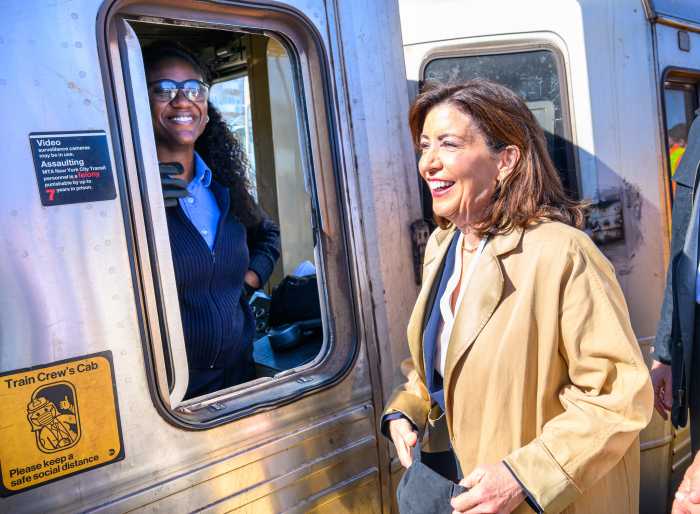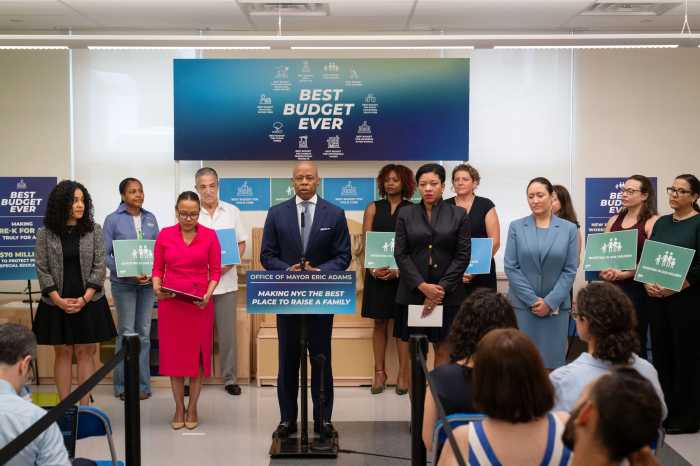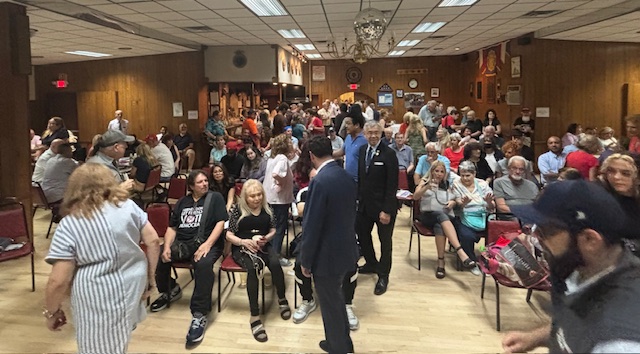
It is heartbreaking to watch, incomprehensible to experience, and currently impossible to cure: Alzheimer’s disease and its effects on memory and daily life.
Alzheimer’s is a progressive brain disorder that affects some 5.7 million Americans. It is a form of dementia and is much more than the normal ravages of aging. Patients can suffer delusions or have trouble with tasks like remembering names or finding items around the house. Some will no longer be able to identify the faces of family or friends.
Some research indicates lifestyle changes can help, but the search for a cure must be ongoing. More people are alerted to the risks of the illness with the spread of (not always reliable) DNA testing. And the number of Americans with Alzheimer’s is projected to nearly triple by 2060.
A checkoff
A group of Long Island politicians has a hopeful idea. Former State Sen. Charles Fuschillo, who now heads the Alzheimer’s Foundation of America, is working with Reps. Tom Suozzi and Pete King on legislation that would add a checkoff to federal income tax forms that would allow taxpayers to make voluntary contributions to the cause. Rep. Kathleen Rice has joined the push as well.
Half of the funds would go to the National Institutes of Health for research to find a cure or better treatment for Alzheimer’s and related diseases. The rest would support training and caregivers.
There is now one such checkoff on the federal income tax form: the box allowing you to divert $3 from your taxes to help fund presidential elections. This Alzheimer’s version would let you give any amount, not tax deductible.
On New York State tax forms there are many checkoffs already, including one for Alzheimer’s.
One problem with tax checkoffs is that, on the state level, they can compete for donations. While the number of New York checkoffs leapt, contributions haven’t kept pace. The state’s Alzheimer’s fund received $7,871,983 from 2000 to the 2016-17 fiscal year.
It seems that over time, people can get less interested in a checkoff subject and funding can drop. So it may be worth considering limited time runs for any new additions on the federal form.
Allocation of funds
For this one in particular, is a donation policy the best way to fund Alzheimer’s care and research? The editorial board struggled with this question. Congress appropriated more than $2 billion in the last budget for Alzheimer’s research, but more should be allocated through that process. Tax checkoffs likely won’t raise money on that scale: The federal fund logged a total of $26 million last year. And which issue should get the money? Climate change is a crisis. Many diseases need cures.
But Alzheimer’s is particularly expensive. The Centers for Disease Control and Prevention projects treatment costs jumping from $379 billion to $500 billion annually by 2040. That might make Alzheimer’s the most expensive health ailment.
The monetary costs are high because most dealing with end-stages of Alzheimer’s require major care, billions of hours of unpaid assistance.
That’s an unacceptable burden, and also an unimaginable emotional toll. A tax checkoff may encourage people to donate toward care and a cure. It’s worth a try, for all those with Alzheimer’s now, and tomorrow.































